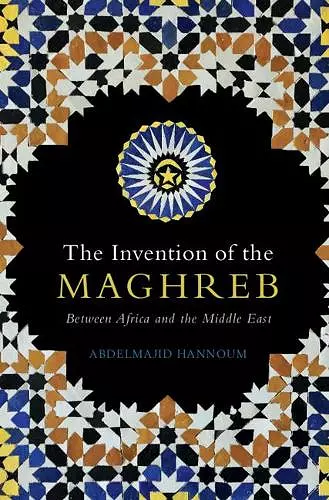The Invention of the Maghreb
Between Africa and the Middle East
Format:Hardback
Publisher:Cambridge University Press
Published:10th Jun '21
Currently unavailable, and unfortunately no date known when it will be back
This hardback is available in another edition too:
- Paperback£23.99(9781108947763)

Abdelmajid Hannoum's The Invention of the Maghreb explores how French colonial rule created a distinct regional identity, separating it from Africa and the Middle East.
In The Invention of the Maghreb, Abdelmajid Hannoum explores the intricate processes through which French colonial rule shaped the identity of the Maghreb. He argues that this transformation began long before the conquest of Algiers and continued well into the era of independence, influencing how the region is perceived today. By examining the historical context, Hannoum highlights the creation of the Maghreb as a distinct entity, separate from both sub-Saharan Africa and the Middle East, revealing the colonial underpinnings of these geographical distinctions.
The author employs an interdisciplinary approach, drawing from various fields such as historiography, anthropology, and linguistics, to illustrate how colonialism utilized translations of classical texts and modern technologies to redefine the region. This reconfiguration was not merely a top-down process; local engagement with colonial politics played a crucial role in shaping the Maghreb's identity. Hannoum's analysis delves into how colonial knowledge systems, including cartography and racial theories, contributed to the perception of the Maghreb as a singular unit, distinct from its African and Middle Eastern neighbors.
Ultimately, The Invention of the Maghreb serves as a critical examination of the legacies of colonialism, demonstrating how these historical narratives continue to influence contemporary understandings of the region. Through his thorough investigation, Hannoum provides valuable insights into the complexities of identity formation in postcolonial contexts, encouraging readers to reconsider established geographical and cultural boundaries.
'Employing evidence from maps and archaeological reports to dialects and notions of nationalism, Hannoum provides an insightful analysis of how the different lands and peoples of north Africa became 'the Maghreb' - how the name and the concept emerged from a complex of modern colonial, racial, and knowledge constructs. Brent Shaw, Princeton University
'Colonial modernity, or the European project to civilize the rest of the world, deploys knowledge, force, and power to control violently but also to create. For countries geopolitically constituted as neither African nor Middle Eastern - Morocco, Algeria, Tunisia - anthropologist Abdelmajid Hannoum skillfully unpacks France's discourses and institutions implicated in the creation of the Maghreb. He brings the region into superb focus through French maps and artifacts used to appropriate precolonial texts, construct colonial perceptions, and set enduring terms for postcolonial knowledge.' Susan Slyomovics, University of California, Los Angeles
'This book will be useful to experts and students interested in North Africa … the book is unique in its genre and highly valuable for Orientalists and IR students wanting to overcome the toxic lenses of centuries of colonial structural violence.' Deborah Caruso, International Affairs
'This book follows a Foucauldian and Saidian tradition and reminds us of the complicated interaction between power and knowledge that runs deep beneath the realpolitik of postcolonial Maghreb.' Chaoqun Lian, China International Strategy Review
ISBN: 9781108838160
Dimensions: 235mm x 156mm x 22mm
Weight: 590g
328 pages